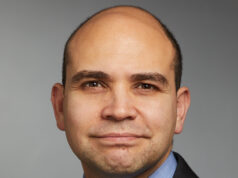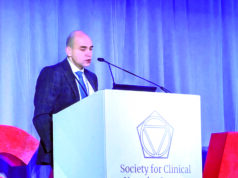At this year’s Charing Cross (CX) Symposium (23–25 April, London, UK), Manj Gohel (Cambridge University Hospitals, Cambridge, UK) spoke with Stephen Black (Guy’s and St Thomas’ Hospital, London, UK) about key takeaways from the venous programme.
Reflecting on the meeting, Black praised the “maturity” of discussions, stating that, across healthcare systems worldwide, venous patients tend to be “deprioritised”. He details that what “stood out was the clear effort to develop pathways that improve patient access and long-term follow-up”.
A recurring theme was the evolution of deep venous stenting, Black emphasising that “venous patients need care delivered that will last for 50 years plus of their life. We are now focusing on stent maintenance, surveillance, and inflow assessment to ensure durable outcomes”. In cautious optimism of novel technologies in this area, Gohel stated: “It’s human nature to be excited. But once the data come through, we have to learn from them and try to make new mistakes and not repeat the mistakes of the past.”
Innovation also featured prominently, with ultrasound artificial intelligence (AI) being a topic of debate. “AI could transform diagnostics if it delivers on its promise, while valves are closer than ever to being clinically viable,” Black commented.
Looking ahead, both emphasised that pathways and multidisciplinary teams will be critical in shaping future venous care, concluding that the “venous patient population is unique and cannot be treated as an extension of arterial treatments. We need infrastructure, data, and collaboration to deliver outcomes that will stand the test of time,” said Black.









